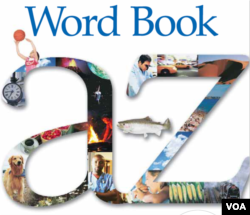Download Lesson 12
Conversation
(blue text shows conditional sentences)
Anna: Wow. Did you know that bees are dying?
Kaveh: That is bad news. If all the bees died, there would be no food. Bees are very important.
(buzz sound)
Anna: Yes, they are. Speaking of bees, one of our little friends is here now.
Kaveh: You know, Anna, if you ignore it, it will fly away. But if you swat it, it might sting you.
Anna: I’ll ignore it. I can ignore it. See, I’m ignoring it. (she is swatting at the bee)
Kaveh: Anna, are you afraid of bees?
Anna: What makes you say that?
Kaveh: Anna, you should call my friend, Caroline. She is a beekeeper and a bee educator. If you talk to her, she’ll probably help you get over your fear of bees.
Anna: I am not afraid of bees.
Kaveh: Here’s her card.
Anna: Ahhh!
Prof. Bot: In this lesson, you can learn about conditionals. They have "if" and "will" or "would." There are two kinds of conditional sentences in this lesson.
Type 1 conditionals have a real event, and a result that probably will happen. Chances are good. Here is the pattern:
If +present tense verb ... will + future tense verb.
Kaveh uses this when he says: "If you ignore it, it will fly away."
Type 2 conditionals have a possible event and a result that may or may not happen. We don't know. Here is the pattern:
If + past tense verb ...would + infinitive verb.
Kaveh uses this pattern when he says, "If all the bees died, there would be no food."
Look for the "if" in a sentence to find more conditionals in today's lesson. I'll color them, too!
Anna: I think I'm at the wrong address. This does not look like a place where bees are kept. (knocks on door)
Anna: Oh, sorry to bother you. I’m looking for beekeeper Caroline. I’m here to take her “Learn to Love Bees!” class.
Caroline: You’re in the right place! I’m Caroline!
Anna: Oh, nice to meet you! Um, Caroline, I thought this class used real bees and real hives.
Caroline: It does! If you look in my backyard, you will see my bees! I’m a home beekeeper!
Anna: What? You live with bees? That is really amazing! And at the same time really scary.
Caroline: It’s not scary. If you come, I’ll show you.
Anna: Caroline, how many bees are in that hive?
Caroline: About thirty thousand (30,000) in each.
Anna: What? That's amazing! But, aren’t you afraid that they are gonna come out and kill you?
Caroline: No, not at all, Anna. Even my children help me. Tell me, why are you afraid of bees?
Anna: I don't know. Well, when I was a little girl my mom ran out of honey. And I really wanted honey for my pancakes. So, I climbed high into a tree and hit a beehive with a stick … several times. Then I reached inside with my bare hands to pull the honey out. That’s when I got stung … a lot.
Anna: Caroline, if you hit a beehive with a stick and reach inside, you might get stung.
Caroline: No, Anna. If you do those things, you will get stung.
Anna: Yes. I did.
Caroline: And you know that it was your fault you got stung, don’t you?
Anna: Yes. I did.
Caroline: Bees know your feelings. And if you stay calm, the bees will be calm. If you're nervous, the bees will be nervous. And if bees are nervous, they may sting. So, please be calm.
Anna: I will be calm. I am calm. Okay, I'm ready. I'm ready
Caroline: Great. Let’s get our equipment on.
Anna: Wait! Wait! I’m not ready! I'm nervous! Give me a minute to be calm.
Prof. Bot: Are you ready for one more conditional sentence?
If you are not afraid, you will join us next time to learn more about bees!
Listening Quiz
See how well you understand this lesson by taking a listening quiz. Play each short video, then choose the best answer.
Free Materials
Download the VOA Learning English Word Book for a dictionary of the words we use on this website.
For Teachers
Send us an email if you have comments on this course or questions. Be sure to download the lesson plan.
Comments
Now it's your turn. Send us an email or write to us in the Comments section below or on our Facebook page to let us know what you think of this lesson.







